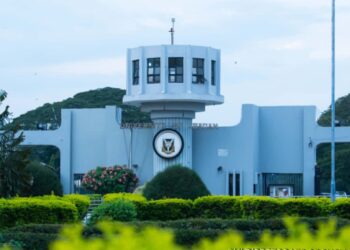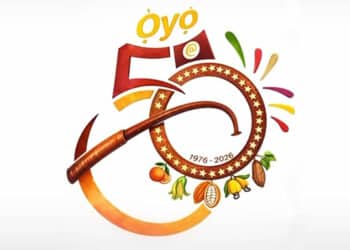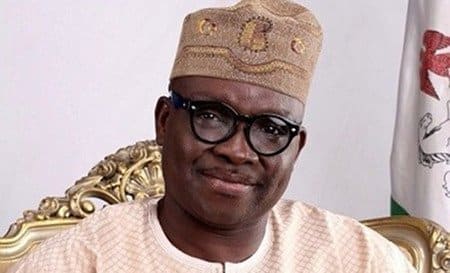The Economic and Financial Crimes Commission (EFCC) on Tuesday carried out simultaneous operations against Bureau de Change operators in Abuja and Kano, as the Naira slumped to N857 to a dollar at the parallel market.
The PUNCH gathered that the raids in the two cities, which netted many illegal BDC operators and individuals suspected to be customers, would also be extended to Lagos, Onitsha, Ibadan, Port Harcourt and other major cities nationwide.
Our correspondents learnt that the incident disrupted the day’s business as many of the BDC operators in Abuja went underground.
This is happening as the EFCC arrested the Kogi State House of Assembly candidate of the New Nigeria Peoples Party, Ismaila Atumeyi and two others with N326m and $140,500 cash.
The black market forex dealers were carrying on their business activity as usual when the EFCC operatives, backed by armed policemen, stormed their makeshift stalls located opposite the Sheraton Hotel in Zone 4, Wuse, Abuja and took many of them into custody.
An eyewitness noted that the arrested suspects were dragged into waiting vehicles as the incident stalled traffic in the area.
In the wake of the Central Bank of Nigeria’s announcement that the redesigned naira notes will replace higher notes to fight counterfeiting, inflation, and insecurity, effective December 15, the national currency has continued to be under pressure against the dollar.
The development was blamed on BDC operators and individuals desperate to convert their ill-gotten money into hard currency.
The EFCC Chairman, Abdulrasheed Bawa had endorsed the planned redesign of the naira. He cautioned BDC operators against currency hoarders who would attempt to seize the opportunity to offload the currencies they had illegally stashed away.
A senior official gave an insight into the raids in Abuja and Kano. The official explained that the EFCC has been monitoring the activities of forex dealers in the two cities and that the operations were intelligence-led.
He further disclosed that the raids would be extended to Lagos, Port Harcourt, Maiduguri, Ibadan and other cities nationwide to stop BDC operators from ‘destroying the naira.’
“Today’s (Tuesday) operations were successful as they were intelligence-led. We have placed various bureau de change points under watch since the CBN announced the redesign of the naira.
“So, we know that those with illegal wealth would want to take advantage of the development to off-load their stash and convert it to dollars. It is not a one-off operation; it would be extended to Lagos, Port Harcourt, Maiduguri, Ibadan, Onitsha and other cities,’’ the official disclosed.
“The EFCC spokesman, Wilson Uwujaren confirmed the raid on the forex dealers in Abuja and Kano but said he has no information on the planned operation in other cities.
“I can confirm that our operatives raided the Wuse Zone 4 area of Abuja today and arrested some BDC operators. However, I can’t confirm the number of suspects arrested yet,’’ he stated.
But speaking with The PUNCH after the raid, a forex dealer in Abuja blamed the EFCC for the local currency crash.
“We are all in hiding. We sell at N857/$ now. I told you it was N850/$ in the afternoon but that rate is no more possible at this time. The dollar is very scarce because the EFCC entered the market today. Maybe things will change tomorrow (today),” a forex dealer, Abubakar Attahiru, told one of our correspondents on the telephone at 6.12 pm on Tuesday.
Another BDC operator offered to buy a dollar bill at N855 if the seller had large sums of greenbacks.
“The more dollars you sell, the more money you make. If we buy at N850/$ from someone who has $100, we will buy at N852 from someone who has $10,000,” he disclosed.
However, the president of the Association of Bureau De Change Operators of Nigeria, Alhaji Aminu Gwaadabe, said he fully supported the raid.
“As an association, we are in support of the raid. We cannot be seeing a lot of irregularities and still support them. It is unlicensed people that have taken over the market. The licensed are not even allowed to operate in the market,” he complained.
He explained that his association was aware of the impact of the proposed naira redesign, which had forced many Nigerians to move towards converting their naira to dollars, noting, however, that it was not a justification for the level of uncertainties in the market.
Economists have said productivity is the only major solution to the naira devaluation and dollarisation of the Nigerian economy.
According to them, the current situation would hurt all aspects of the economy.
For a Professor of Economics at the Nnamdi Azikiwe University, Awka, Anambra State, Uche Nwogwugwu, the major problem was the CBN’s naira redesign announcement.
“What you have seen in the parallel market is a spasm of fear in the people. Why do you need to change your currency at this time when you have inflationary pressure, falling reserves and an economic downturn?
“If all of a sudden you are compelling people to change their currencies, they will be afraid and you will certainly have this kind of situation,” he said.
The Chief Executive Officer of the Centre for the Promotion of Private Enterprise, Dr Muda Yusuf, explained that the current devaluation of the naira at over N800 to a dollar would take its toll on the budget deficit of the country.










